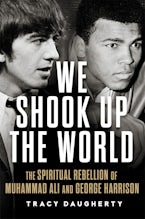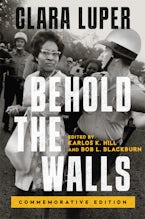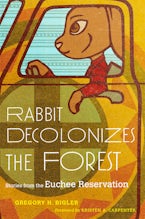- Home
- history
- social science
- political science
- Tulsa, 1921
Tulsa, 1921
Reporting a Massacre
Foreword by Karlos K. Hill
Published by: University of Oklahoma Press
Imprint: University of Oklahoma Press
328 Pages | 6 x 9 | 23 b&w illus., 1 map
$34.95
$21.95
$21.95
In 1921 Tulsa’s Greenwood District, known then as the nation’s “Black Wall Street,” was one of the most prosperous African American communities in the United States. But on May 31 of that year, a white mob, inflamed by rumors that a young Black man had attempted to rape a white teenage girl, invaded Greenwood. By the end of the following day, thousands of homes and businesses lay in ashes, and perhaps as many as three hundred people were dead.
Tulsa, 1921 shines new light into the shadows that have long been cast over this extraordinary instance of racial violence. With the clarity and descriptive power of a veteran journalist, author Randy Krehbiel digs deep into the events and their aftermath and investigates decades-old questions about the local culture at the root of what one writer has called a white-led pogrom.
Krehbiel analyzes local newspaper accounts in an unprecedented effort to gain insight into the minds of contemporary Tulsans. In the process he considers how the Tulsa World, the Tulsa Tribune, and other publications contributed to the circumstances that led to the disaster and helped solidify enduring white justifications for it. Some historians have dismissed local newspapers as too biased to be of value for an honest account, but by contextualizing their reports, Krehbiel renders Tulsa’s papers an invaluable resource, highlighting the influence of news media on our actions in the present and our memories of the past.
The Tulsa Massacre was a result of racial animosity and mistrust within a culture of political and economic corruption. In its wake, Black Tulsans were denied redress and even the right to rebuild on their own property, yet they ultimately prevailed and even prospered despite systemic racism and the rise during the 1920s of the second Ku Klux Klan. As Krehbiel considers the context and consequences of the violence and devastation, he asks, Has the city—indeed, the nation—exorcised the prejudices that led to this tragedy?
Randy Krehbiel has been a reporter for the Tulsa World since 1979 and now covers political and governmental affairs in Oklahoma and the United States. He is the author of Tulsa’s Daily World: The Story of a Newspaper and Its Town.
Karlos K. Hill is Regents’ Associate Professor in the Clara Luper Department of African and African American Studies at the University of Oklahoma. He is the author The 1921 Tulsa Race Massacre: A Photographic History.
"Journalist Randy Krehbiel has written the best book on the Tulsa tragedy of 1921 to come out in the past twenty years, or possibly ever."—Alfred L. Brophy, author of Reconstructing the Dreamland: The Tulsa Riot of 1921—Race, Reparations, and Reconciliation
“In Tulsa, 1921: Reporting a Massacre, Randy Krehbiel offers those interested in US and African American history a thoughtful and essential case study that links the tragedy of the past to contemporary struggles against racism today.”—Missouri Historical Review
“Randy Krehbiel’s book is a much-needed contribution to Oklahoma history and African American history. Tulsa 1921: Reporting a Massacre allows for the opportunity to continue the dialogue about racialized violence in the United States and Oklahoma, both historically and today. The book is also an important contribution for understanding the role of the press in racialized violence during the early twentieth century.”— Chronicles of Oklahoma
“[Tulsa, 1921] would be an appropriate and meaningful addition to any syllabus rooted in American history, twentieth-century race relations, media studies, or the dynamics of power, domination, and resistance. Both scholars and “history buffs” will benefit from Tulsa, 1921, as will anyone interested in the cultural and economic history of the southern Great Plains.”— Great Plains Quarterly
2020 -
Best Book on Oklahoma History -
Winner
2020 -
Oklahoma Book Awards, Nonfiction -
Winner
2020 -
Award for Outstanding Western Book -
Runner-up












